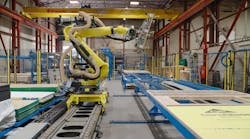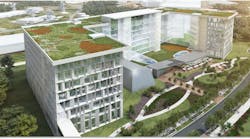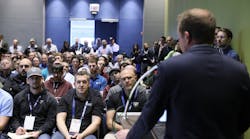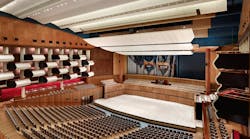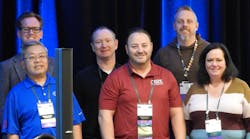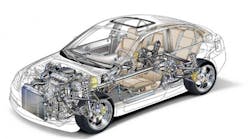Imagine cars were developed the same way buildings are: designed by one entity, constructed by another, and proven by a third. All the while, each of us, as the owner, is responsible for the success of the finished product and, of course, paying for it all. How would you direct the process to make it successful? Would you be satisfied to proceed just as buildings are designed and constructed today?
Because cars and buildings are both “products” in a legal sense and because the integration and complexity of mechanical and electronic systems are similar, there’s good parity in this comparison. But most in the HVAC industry of whom I ask this question just shake their heads, not willing even to contemplate such an exercise. However, I think there is a lesson for our industry in such an exercise. And that is important because we all should be to looking for ways to make the processes our industry employs work since there is compelling evidence that all too often they do not.
So let us for a moment think how we would develop the most positive outcome for such an exercise. I think the most would agree what is needed is a much more cohesive process than is commonly practiced in the building industry. I am continually amazed at how disjointed and wasteful many of the processes in our industry are, particularly in the controls arena—which, like in the auto industry, is fundamental to nearly every aspect of performance. Wouldn’t we require a process that develops and enforces in-depth benchmarks for performance and reliability along with an effective regimen of collaboration to ensure success? I think we would certainly demand that our new car actually does accelerate, corner, and brake as advertised. And we would want it to achieve its projected fuel economy without breakdowns. To ensure these performance criteria are met we would surely want any commissioning or performance proving process to focus on such issues. We would conclude that the only way to ensure our new car meets the various performance objectives is for the all involved throughout the process to work closely together and for all to be accountable in meeting those initially developed objectives.
Translated to buildings, specific comfort, energy efficiency, and reliability benchmarks are too often absent or lost by the time the owner takes possession. And it’s not hard to see why. There are many differences between the auto and building industries. But one we should work to mitigate for our industry’s benefit is the incredibly disconnected processes of designing, constructing, starting, testing, and verifying system performance in buildings. It is not unusual for each of these processes to be entirely independent of one another, without any meaningful communication or collaboration between them. There are few problems that cannot be resolved with greater teamwork. And to encourage and direct that teamwork our projects need a much greater focus on useful performance benchmarks.
Of course teamwork is far more easily accomplished in the auto industry since everyone is directly employed by and responsible to the same entity. But the lack of central authority does not mean teamwork in our industry cannot be vastly improved. There are two fundamental factors that work against teamwork. One is a tendency toward adversity between the designers, manufacturers, builders, and operators. This is largely because the interests and abilities of each are not well understood by others. The second is a strong desire not to be accountable. But these issues are just as active in the auto industry as in the building industry and we need to find ways to overcome them within our organizational structure just as the auto industry does within theirs.
Here are some very basic ideas about how each of us can work to overcome these barriers in order to improve teamwork and achieve better building outcomes. First, get involved in and become knowledgeable about all areas of building projects. For example, if you are a designer, spend time during the construction, startup, commissioning, and operation of buildings in order to learn more about these activities and their specific needs and limits. I find nearly all the criticisms one entity has about others—such as misapplying their products, or reducing things to their level of understanding—are based on ignorance of what goes on beyond one’s specific area of work. To help, we all must become more versed generally about the needs of the building industry processes that are beyond our specific area of work.
The second critical issue we can change is the lack of accountability. If we are designing buildings to achieve certain levels of comfort and operating efficiency, we need to accept responsibility to see these goals are achieved and develop new tools that allow us to do so. The starting point for a solution to this critical issue involves doing a far better job of establishing performance goals at the very start of building projects and effectively communicating them to ensure everyone holds to them throughout. And each entity with accountability must have the authority that allows them to succeed. Again, to make this effective requires communication and a level of teamwork that is rarely seen in our industry today.
There is a lot we can learn and apply from other industries that will help ours do a much better job in ours. From my perspective, the issue that stands out the most is the surprising lack of teamwork between those involved in the various stages of the building construction process. We can do so much better if we work to apply approaches others have found to be successful.
I invite your thoughts, comments, and good ideas about this article. Please contact me at [email protected]

